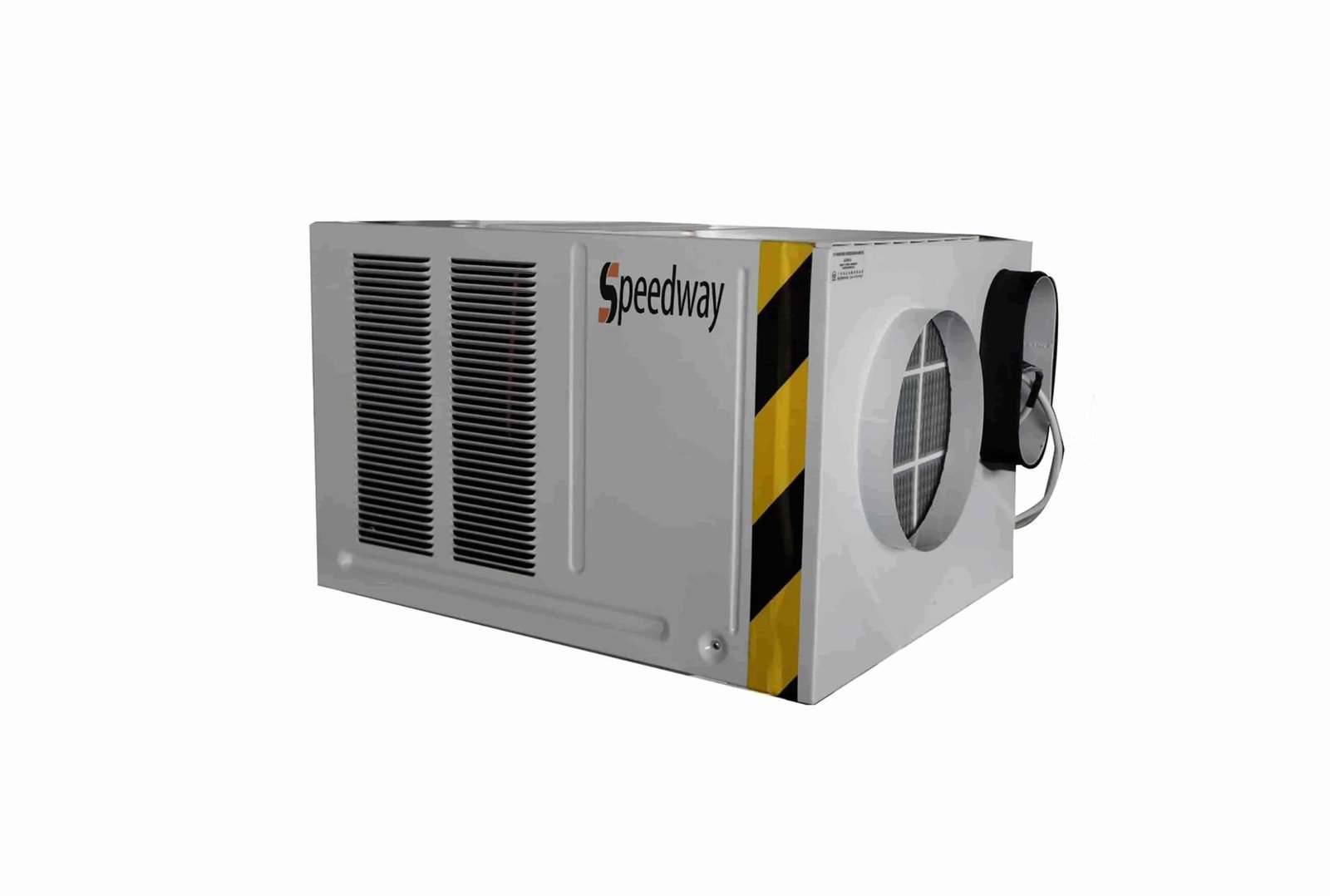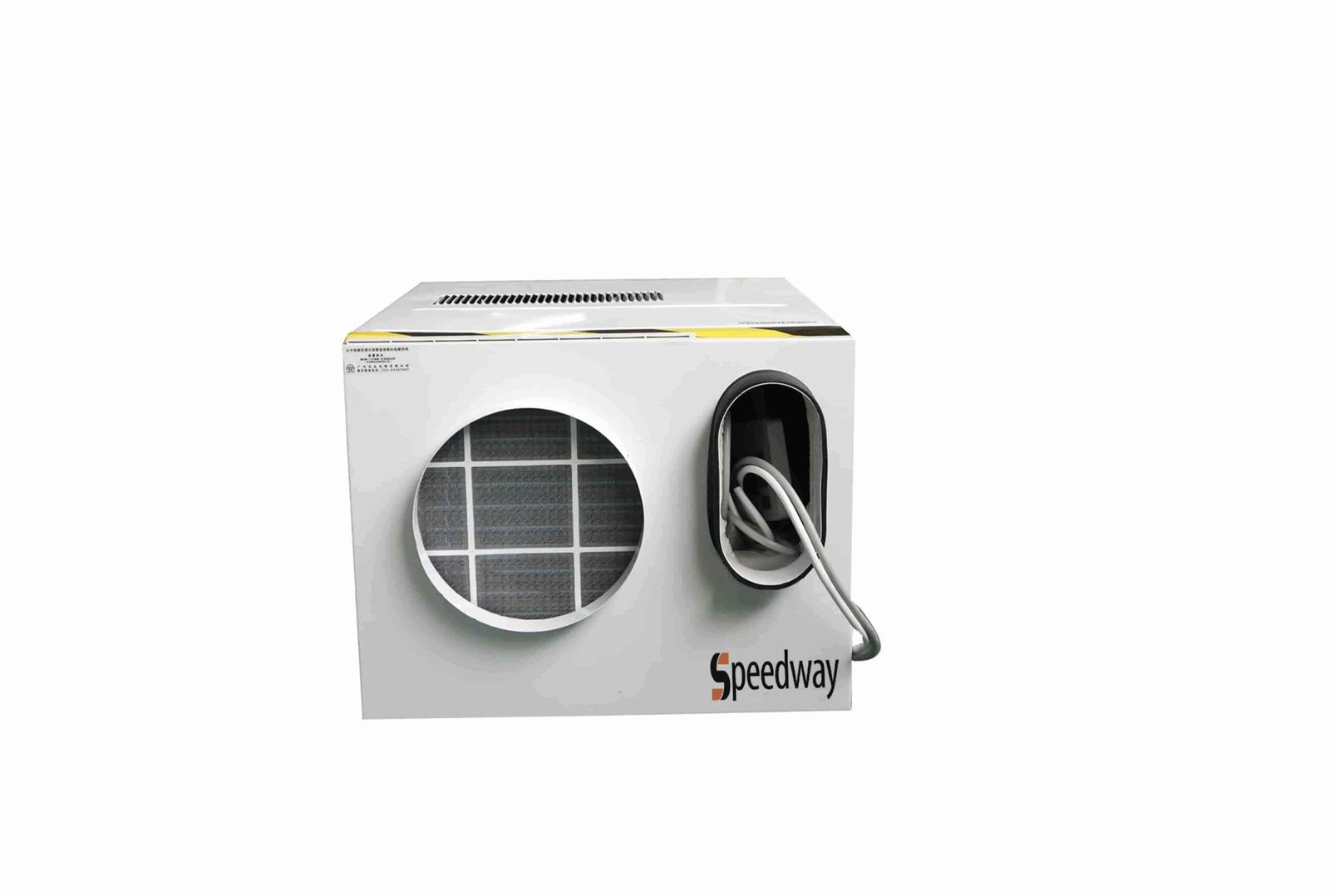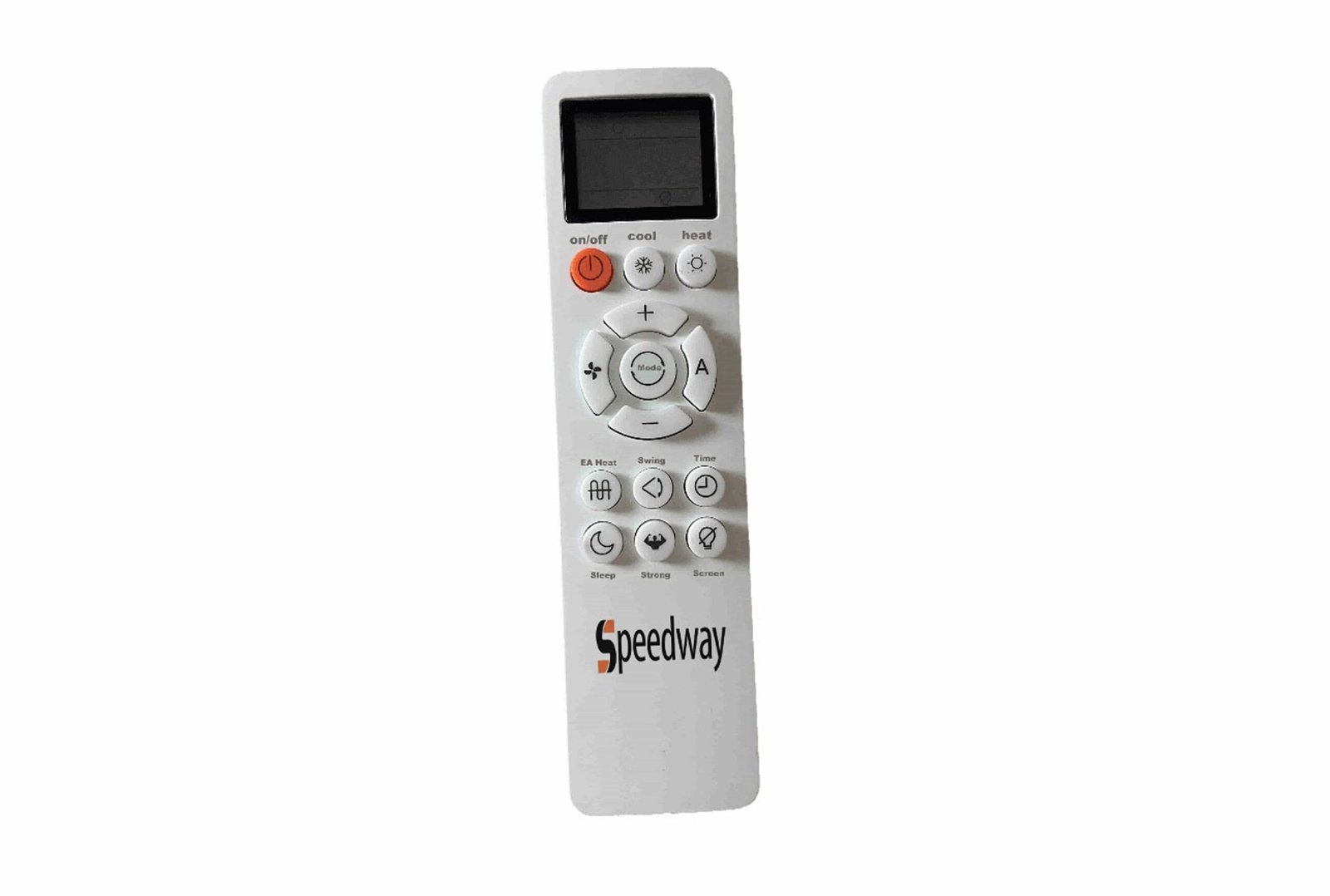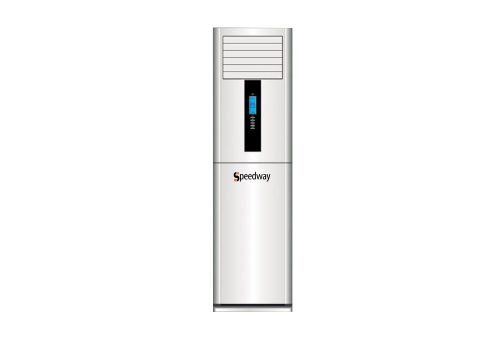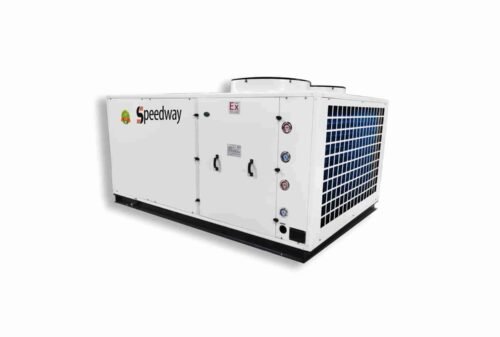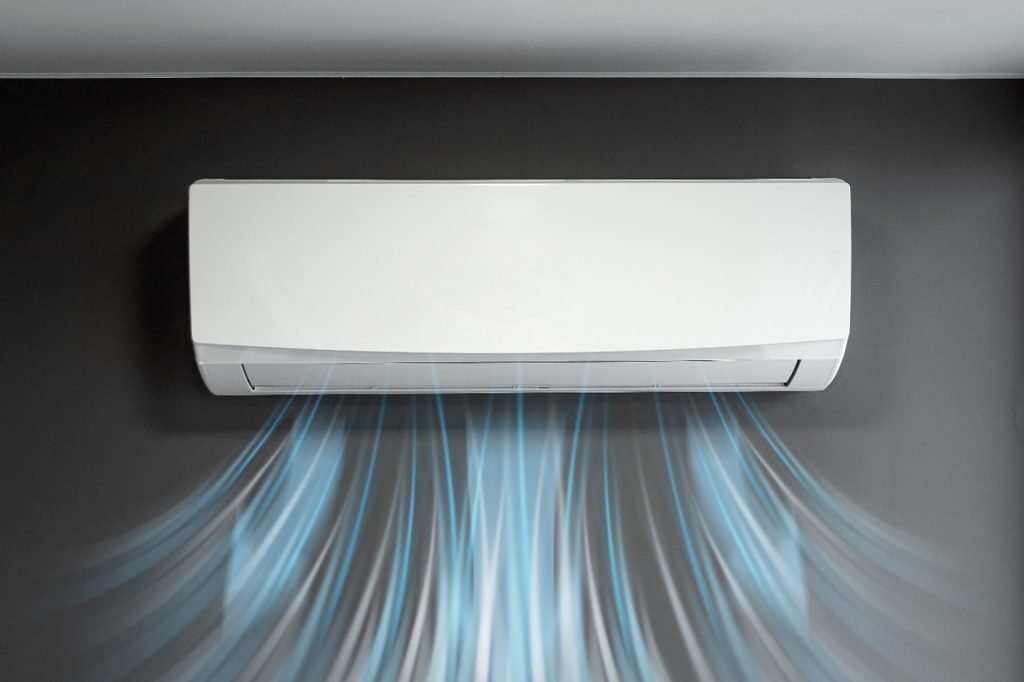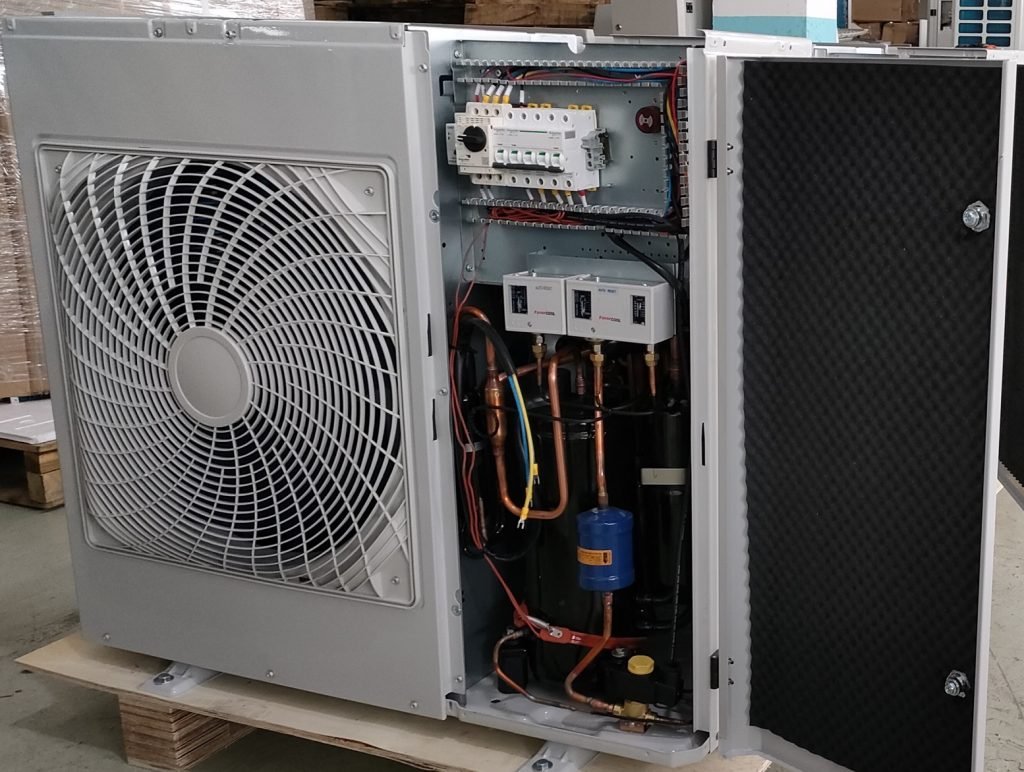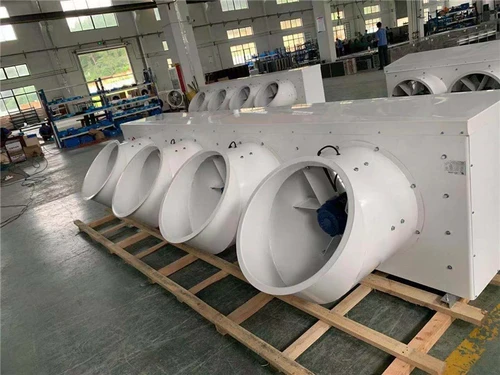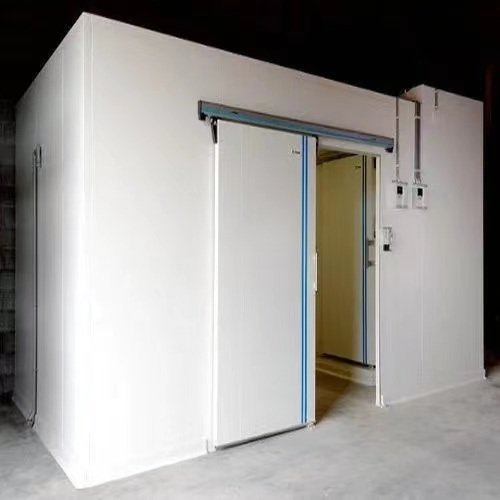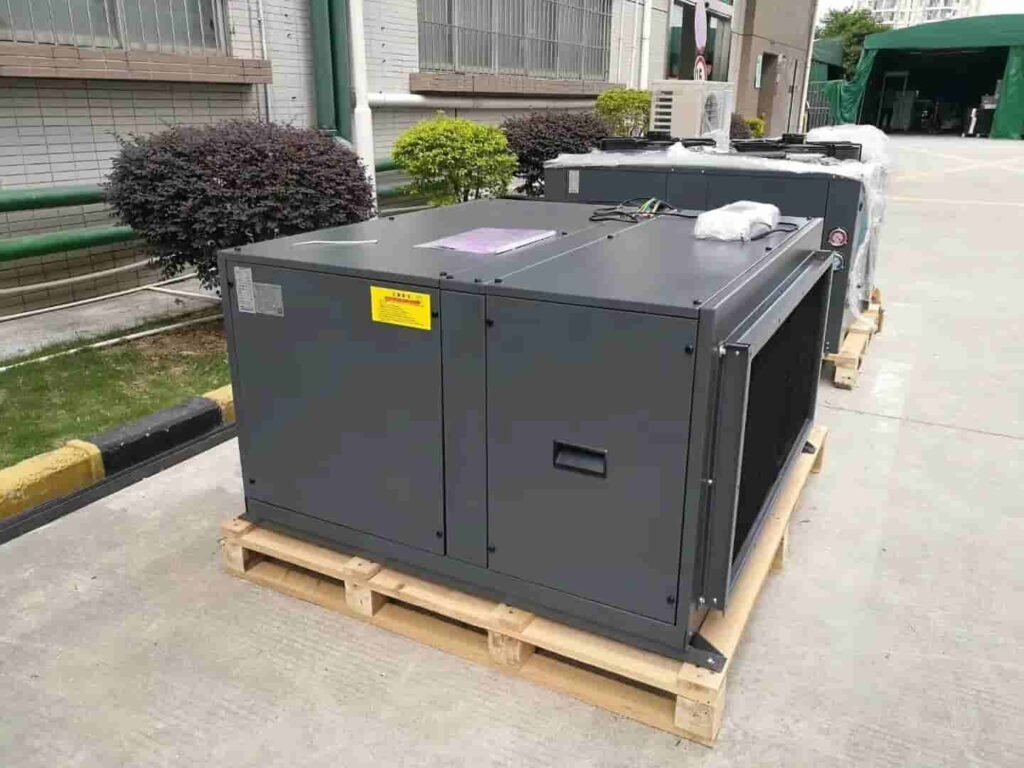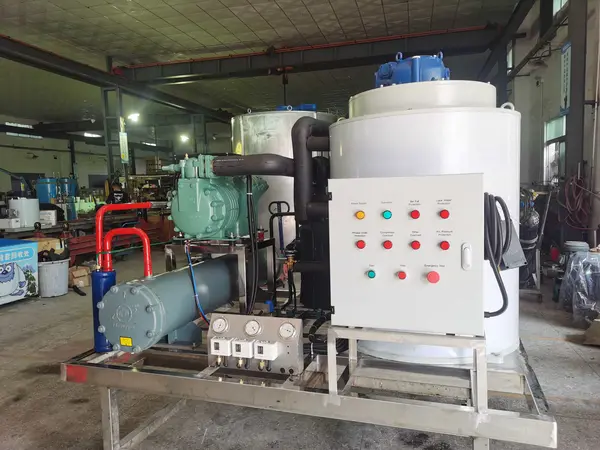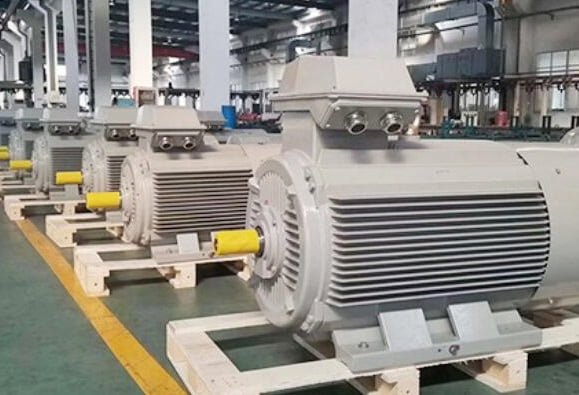Description
What is elevator air conditioner?
Elevator air conditioner is a special HVACR (Heating, Ventilation, Air Conditioning and Refrigeration) system for use within elevator cabins. It is responsible for regulating the temperature, humidity, and air quality inside the elevator, ensured a comfortable and pleasant environment.
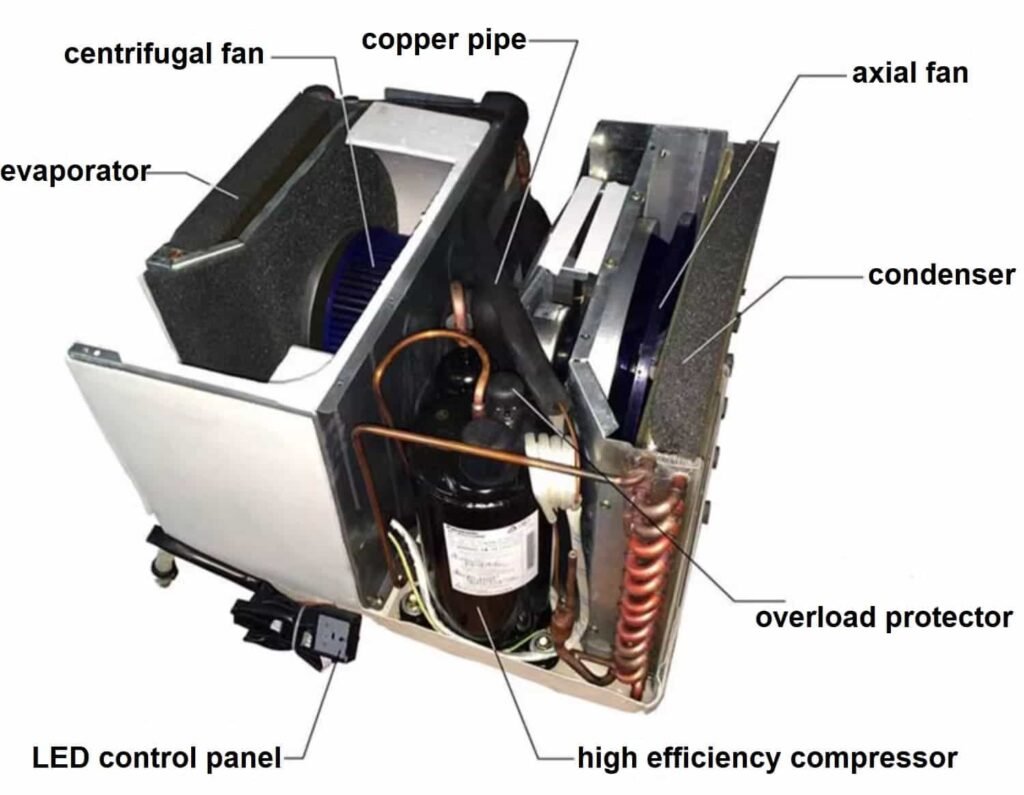
Elevator Air Conditioner Structure
These systems are compactly designed to fit within the limited space available in elevator shafts or on top of elevator cabins and incorporate features such as efficient cooling mechanisms, precise temperature control, humidity regulation, etc.
Elevator air conditioners play a crucial role in enhancing the overall riding experience and passenger comfort in modern buildings with multi-story structures.
Elevator air conditioner classification
Elevator Air Conditioner can classify on various criteria, see common classifications below:
Installation Location
1.In-Cabin
Means split system, consist of separate indoor and outdoor units, with the indoor unit installed inside the elevator cabin and the outdoor unit placed in a fixed location outside the elevator shaft, to provide localized cooling for passengers.
2.On-Top
Means monoblock system, air conditioners mounted on top of the elevator cabin or within the elevator shaft, offering centralized cooling for multiple cabins.
Combined all components, included compressor, condenser, evaporator,etc into a monoblock unit.
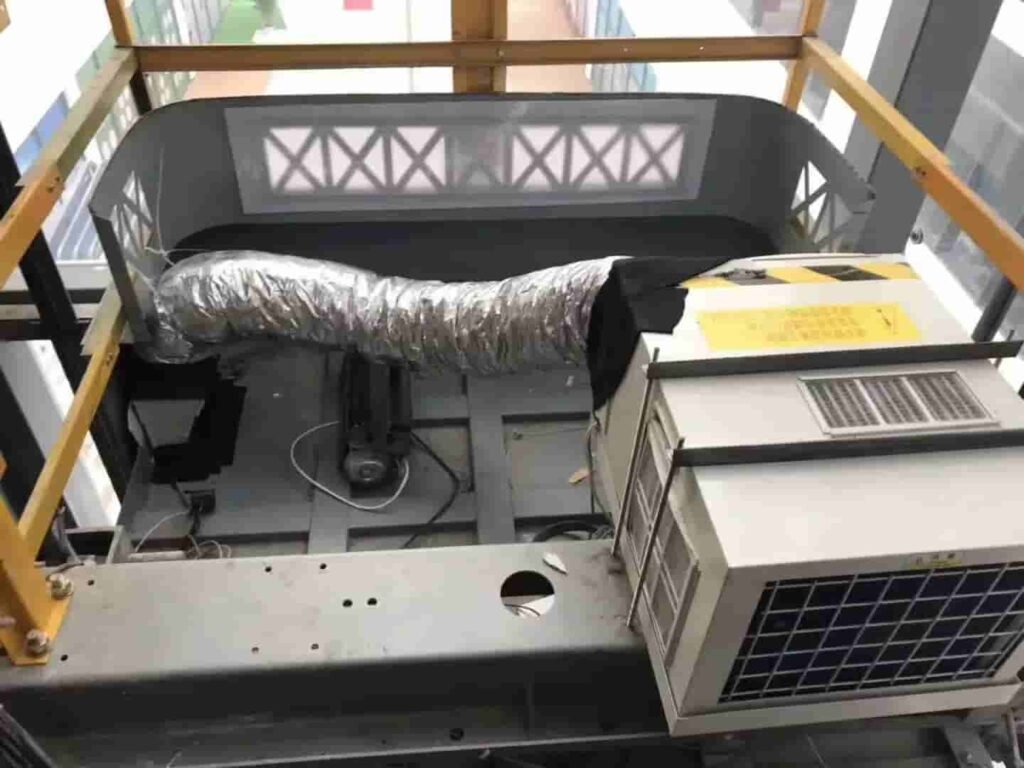
Cooling Capacity
1.Single-Zone
Cool a single elevator cabin.
2.Multi-Zone
Cool multiple elevator cabins simultaneously, normally used in buildings with high elevator traffic.
Technological Feature
1.Basic
Entry-level models with essential cooling and temperature control functions.
2.Advanced
Incorporate additional features such as humidity regulation, air filtration, remote monitor, and smart integration with building management systems.
Energy Efficiency Rating
1.Standard Efficiency
Offer basic energy-saving features and moderate efficiency ratings.
2.High Efficiency
With advanced energy-saving technology, such as inverter compressor and intelligent control, to maximize efficiency and reduce power consumption.
Special Application
1.Low-Capacity
Used for elevators with limited overhead clearance.
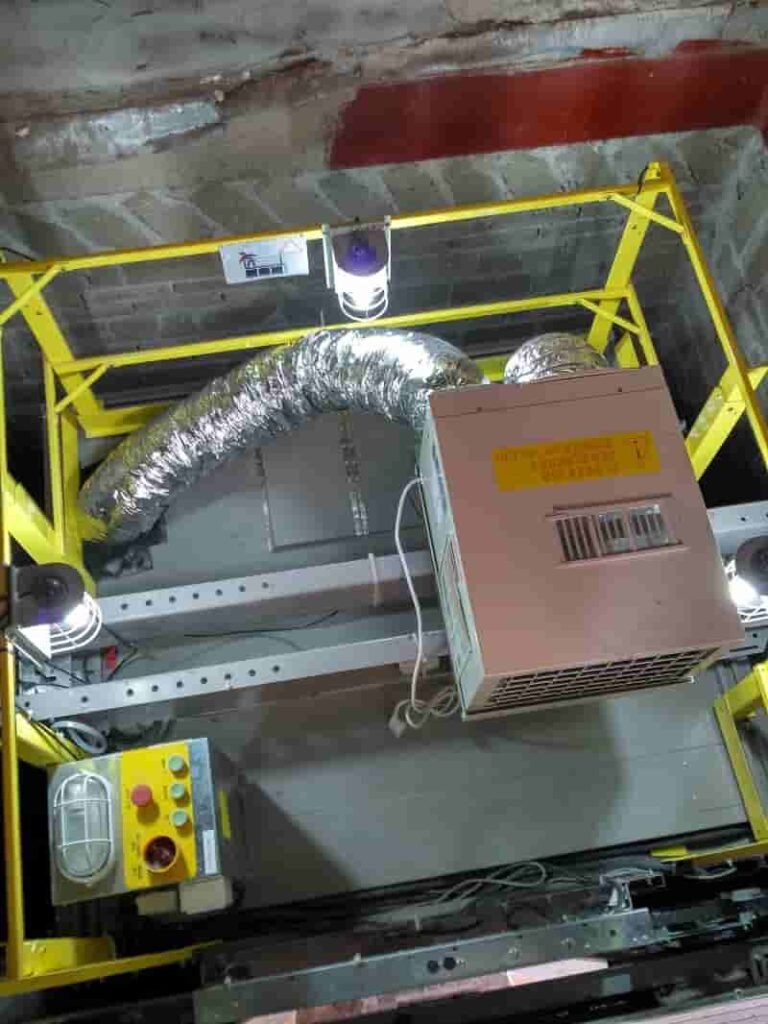
2.High-Capacity
Can handle larger elevator cabins or buildings with exceptionally high elevator traffic.
————How to Select Correct Elevator Air Conditioner?————
1. Evaluate Elevator Cabin Size
This will help choose correct cooling capacity for the air conditioner.
2. Review Environmental Condition
Regions with hot and humid climates may require air conditioner with enhanced cooling and humidity control function.
3. Consider Installation Location
Decide whether the air conditioner will be installed inside the elevator cabin or on top of the elevator cabin or within the shaft.
Choose a design that suits the available space and installation.
4. Evaluate Energy Efficiency
Look for Air Conditioner with high energy efficiency ratings to minimize operation costs and environmental impact. Consider features such as inverter compressor, energy-saving mode, and intelligent control.
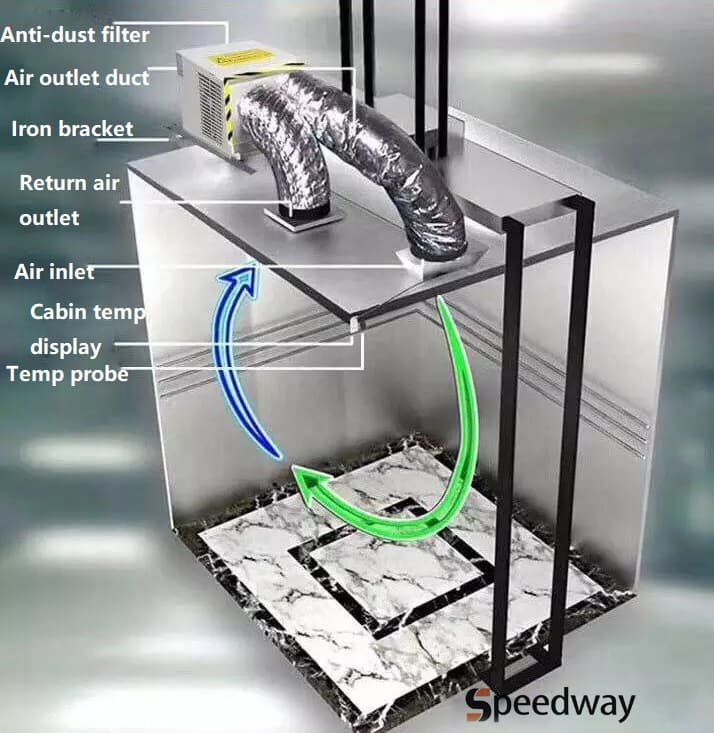
Elevator Circulating Air Diagram
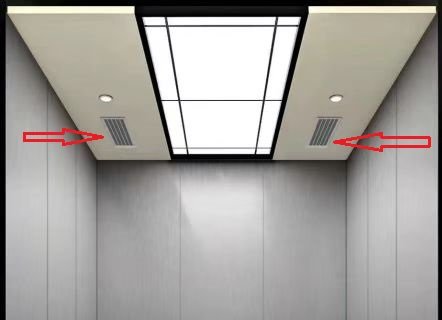
Elevator Air Conditioner Air Inlet and Outlet
5. Noise Level
Choose air conditioner with low noise to ensure a quiet and comfortable riding experience for passengers. Low-noise models are very important for buildings with sensitive residents or noise regulations.
6. Evaluate Cost and Budget
Compare the upfront cost, installation expenses, and long-term operating costs of different air conditioner models. Balance the initial investment with potential energy savings and performance benefits over the system’s lifetime.
Elevator Air Conditioner Parameter
| Model | SW-18(D)NR | SW-25(D)NR | SW-35(D)NR |
|---|---|---|---|
| Capacity (Horsepower) | 0.75HP | 1.0HP | 1.5HP |
| Rated Cooling Power | 1800w | 2500w | 3500w |
| Rated Cooling Input Power | 619w | 825w | 1050w |
| Rated Heating Input Power | 715w | 950w | 1200w |
| Rated Cooling Input Current | 2.8A | 4.6A | 5.5A |
| Rated Heating Input Current | 3A | 4.8A | 6.0A |
| Max Input Power | 920w | 1270w | 1640w |
| Air Volume | 330 m3/h | 410 m3/h | 520 m3/h |
| Power Supply | 220V 50/60Hz | 220V 50/60Hz | 220V 50/60Hz |
| Refrigerant | R410A | R410A | R410A |
| Refrigerant Weight | 0.32kg | 0.65kg | 0.9kg |
| Compressor Type | Rotary high efficient | Rotary high efficient | Rotary high efficient |
| Compressor Brand | GMCC / Panasonic | GMCC / Panasonic | GMCC / Panasonic |
| Control Way | Micro-computer auto | Micro-computer auto | Micro-computer auto |
| IP Grade | IPX4 | IPX4 | IPX4 |
| Air Inlet Dimension | 300 x (50 or 100)mm | 300 x (50 or 100)mm | 300 x (50 or 100)mm |
| Return Air Outlet Dimension | 300 x (50 or 100)mm | 300 x (50 or 100)mm | 300 x (50 or 100)mm |
| Net Weight | 33kg | 34kg | 38kg |
| Noise dB(A) | ≤42 | ≤45 | ≤50 |
| Net Dimension | 420X380X335mm | 560X495X385mm | 570×460×400mm |
| Package Dimension | 450X410X355mm | 600X530X420mm | 605X480X430mm |
| Loading Weight | ≤1000Kg | ≤1350Kg | ≥1350Kg |
| Ambient Temp | ≤43°C | ≤43°C | ≤43°C |
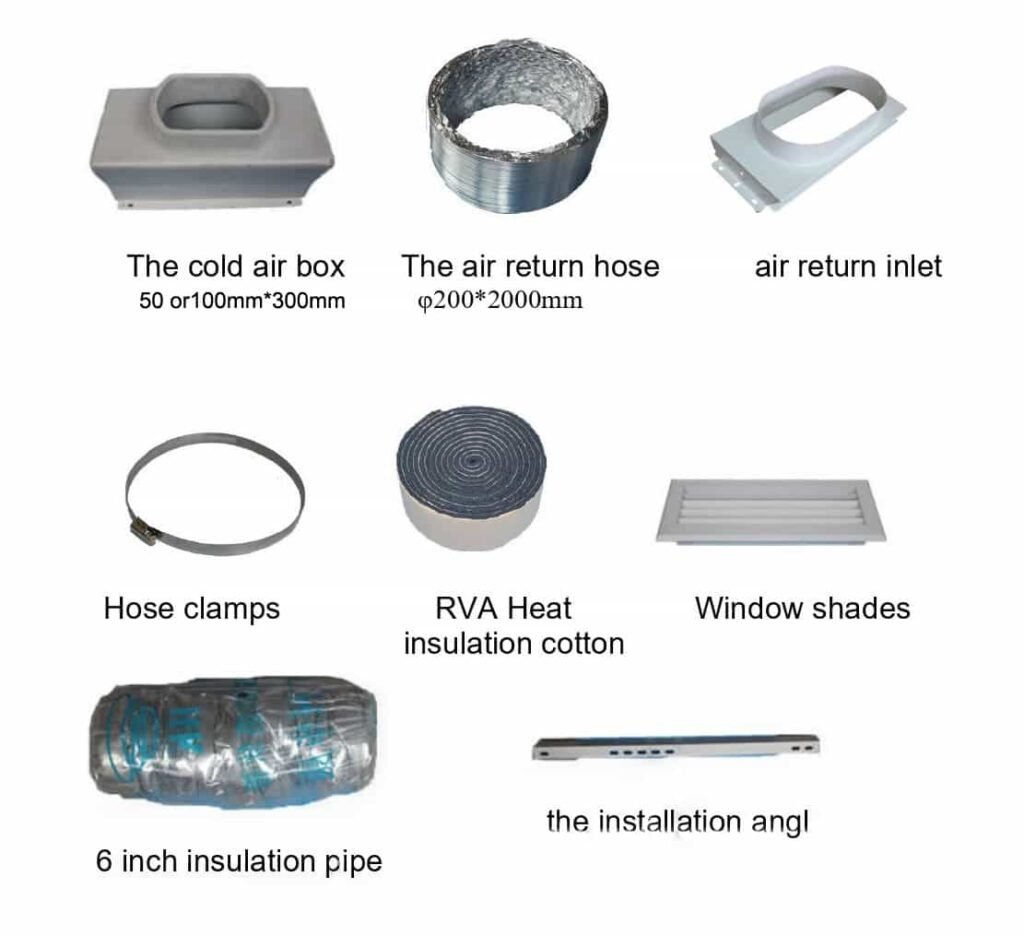
Elevator Air Conditioner Installation Accessories
————Frequent Asked Questions————
1. Are elevator air conditioners suitable for all types of elevators?
Not exactly.
Elevator air conditioners can accommodate various elevator configurations, including passenger elevators, freight elevators, and service elevators.
But it’s essential to choose a unit which meets the requirements of your elevator system.
2. Can elevator air conditioners be installed in existing elevator systems?
Yes, but you should consider many factors such as available space, electrical consumption, structure, etc.
You can consult a Qualified HVACR Expert to assess the suitability of using the air conditioner into your existing elevator.
3. What are the power requirements for elevator air conditioners?
Elevator air conditioners require a dedicated power supply to operate effectively. The power requirements vary depending on factors such as cooling capacity, voltage, and system configuration.
You should ensure the electrical infrastructure supporting the elevator system which can accommodate the power demands of the air conditioner without overloading the circuitry or compromising safety.
4. Do elevator air conditioners impact the load capacity of elevators?
Almost can ignore.
Because elevator air conditioners are lightweight and compact to minimize their impact on the load capacity of elevators.
However, it’s crucial to consider the added weight of the air conditioner during installation and factor it into the elevator’s load capacity calculations.
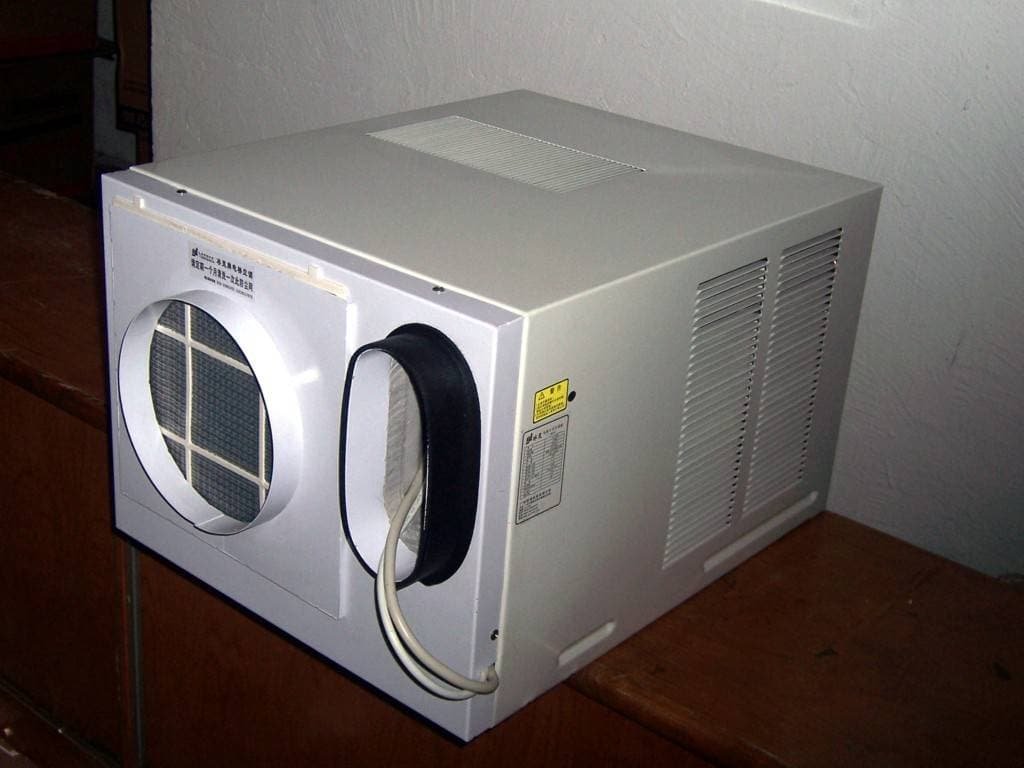
5. Are elevator air conditioners noisy?
No.
The noise level can vary depending on factors such as air conditioner design, installation location, maintenance practice, etc.
Our elevator air conditioners are with noise-reducing technology and sound-dampening features to ensure a quiet and comfortable riding experience for passengers.
6. Can elevator air conditioners be controlled remotely?
Yes, the remote control can adjust setting, monitor performance, and diagnose issues remotely.
Remote access features provide convenience for system management, especially in buildings with multiple elevators.
7. Are elevator air conditioners safe for use in enclosed spaces?
Yes, our elevator air conditioners can meet strict safety standards and regulations governing their use in enclosed spaces such as elevator cabins.
They must pass rigorous testing to ensure compliance with electrical safety, fire protection, and environmental health standards to ensure safe operation for passengers.
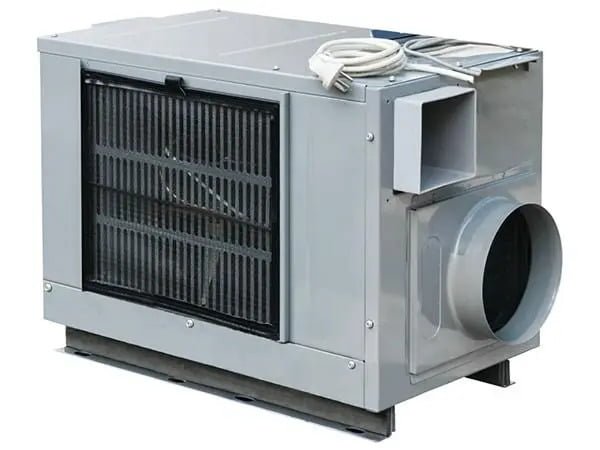
8. Can elevator air conditioners be customized to match specific design requirements?
Yes, we offer customizable design to match specific and unique requirements.
These options may include custom finishes, colors, and mounting arrangements to seamlessly integrate with the overall design theme of the elevator cabin or building interior.
Elevator Air Conditioner Installation Video

